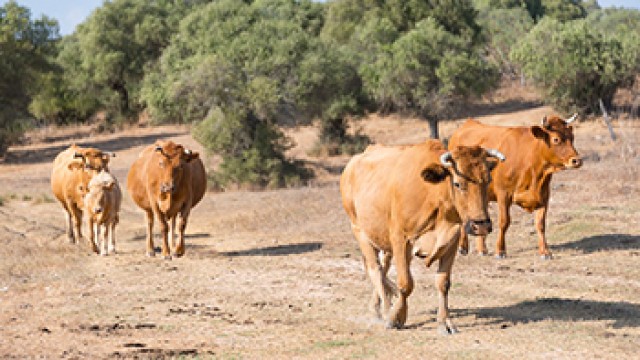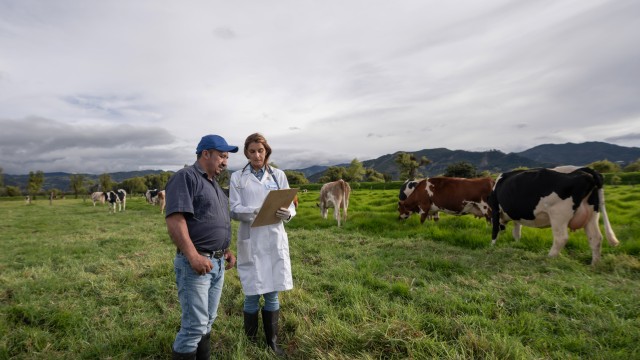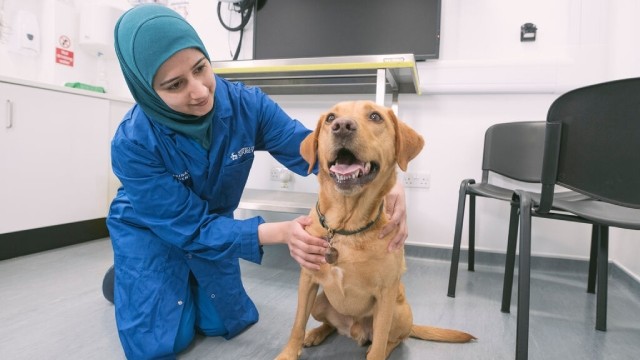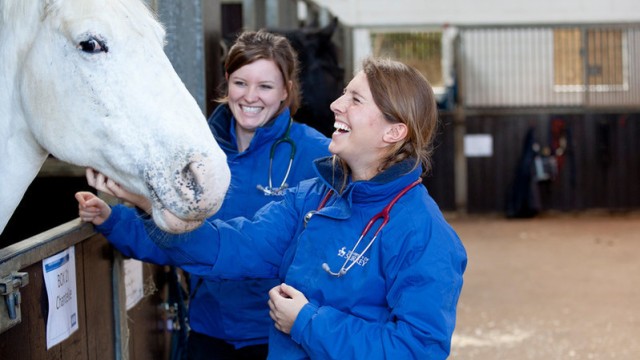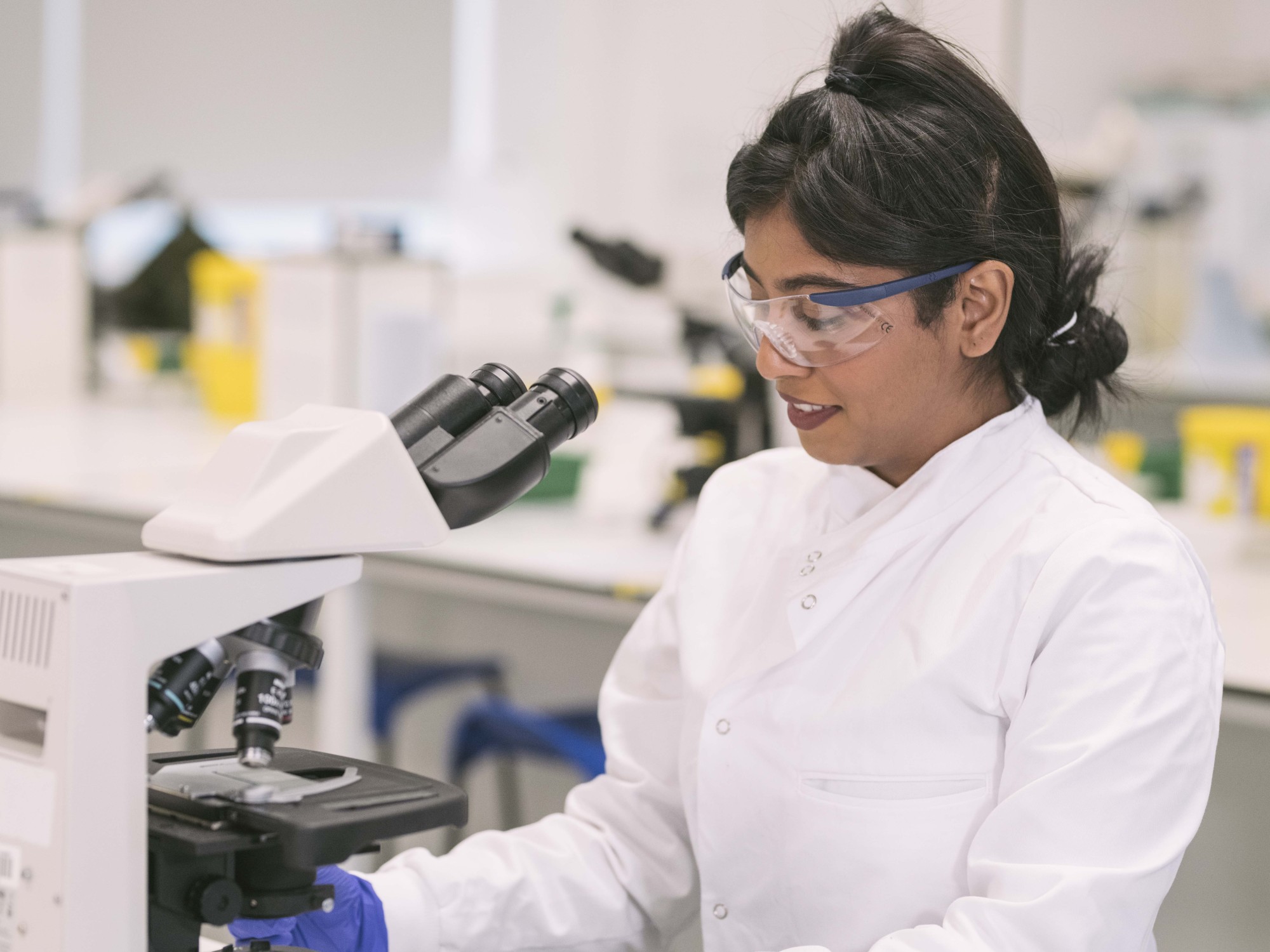
- Veterinary Medicine and Science
PhD Veterinary Medicine and Science
On our Veterinary Medicine and Science PhD, you’ll immerse yourself in research, contributing to crucial advancements in human and animal health. You’ll have access to state-of-the-art facilities across the Faculty of Health and Medical Sciences at Surrey or at a collaborating institution (or both), with support from our expert academics.
4,138+ people have created a bespoke digital prospectus
Why choose this
programme?
- Champion our ‘One Health, One Medicine’ approach which brings together expertise from a broad range of multidisciplinary areas and collaborations with national and international partners.
- Join a school that is renowned for its research into human and animal health and welfare, including significant advances in equine health.
- Access the Veterinary Health Innovation Engine (vHive), a research centre, start-up and incubator supported by a co-investment of £8.5 million in resources, dedicated to the development and adoption of new digital technologies in animal health.
- Benefit from multimillion-pound facilities, including our Veterinary Pathology Centre and Veterinary Biomechanics Laboratory.
- Work alongside academic staff with a range of expertise, including applied clinical research, fundamental science, epidemiology and pathology.
Statistics
100%
Of our veterinary medicine research graduates are in employment or further study within 15 months of graduating (Graduate Outcomes 2025, HESA)
Top 20 for research outputs
The University of Surrey is ranked in the top 20 for the quality of our research outputs (REF 2021)
33rd for overall research quality
The University's overall research quality ranking has risen by 12 places to 33rd in the UK (REF 2021)
What you will study
Our PhD is research-based, so you’ll spend most of your time developing a research question, conducting original research, analysing your results and writing up your research findings, all under the guidance of your project supervisors.
Examples of current PhD student projects include:
- Disentangling the role of Ascaris β-tubulin isotypes in the emergence of anthelmintic resistance
- Rabies epidemiology and control
- The role of the microbiome and circulating endothelial cells in the pathobiology of cutaneous and renal glomerular vasculopathy (CRGV).
Depending on the nature of your research project, you might do computational analysis work at a desk, or experimental work in a laboratory, a clinic or in the field, or a combination of these.
You can work on your project on-site at the School of Veterinary Medicine or, depending on your research, at another facility in the Faculty of Health and Medical Sciences. If you work from a collaborating institution, you’ll need to come to the University of Surrey periodically to attend training sessions, examinations and meet your supervisors.
Partnerships
Reflecting the variety of roles that veterinarians play in society, we are proud to collaborate with a range of partners, including:
- Animal and Plant Health Agency (APHA)
- Fitzpatrick Referrals
- Liphook Equine Hospital
- Marwell Wildlife
- The Pirbright Institute
- Surrey Wildlife Trust
- The Westpoint Veterinary Group
- UK Health Security Agency.
Assessment
Your final assessment will be based on the presentation of your research in a written thesis, which will be discussed in a viva examination with at least two examiners.
You have the option of preparing your thesis as a monograph (one large volume in chapter form) or in publication format (including chapters written for publication), subject to the approval of your supervisors.
You’ll have a confirmation assessment to formally review your project. If you're a full-time student, this will take place around 9–15 months into your studies or 18–30 months if you’re studying part-time. You’ll be required to submit a written report and successfully complete an oral examination.
Location
This course is based at Manor Park campus. Manor Park is home to the School of Veterinary Medicine, plus Surrey Sports Park and Manor Park halls of residence.
VSM Building, University of Surrey, Daphne Jackson Road, Guildford, GU2 7AL.
Research themes
At Surrey, we’re focused on collaborative veterinary research, working with leading research institutions, veterinary practices and the wider veterinary industry, to ensure everything we do is relevant to the sector. Our research investigates:
- Clinical sciences, including biomarkers of neoplasia, biomechanics, orthopaedics, neurology, nutrition and youngstock health and production.
- Education, including clinical skills, communications and professionalism and technology enhanced learning.
- Epidemiology and public health, including animal health surveillance, food chain health and interactions with animals and people.
- Pathology and infectious diseases, including antimicrobial resistance, comparative pathobiology, disease intervention, emerging pathogens, food-borne pathogens, host-pathogen interactions and neuropathobiology.
- Preclinical sciences, including cardiovascular biology, metabolism, musculoskeletal biology, physiology, design-based stereology, and neuroscience.
Throughout your studies you’ll have at least two supervisors from the School of Veterinary Medicine and other relevant schools within the Faculty of Health and Medical Sciences (Biosciences, Health Sciences, Medicine and Psychology).
Your supervisors will give you academic guidance and tuition, help you develop your research ideas and plans, consider your theory and methods, and analyse your work. They’ll also give you pastoral support and advice, referring you to more specialist services where necessary.
Research support
The professional development of postgraduate researchers is supported by the Doctoral College, which provides training in essential skills through its Researcher Development Programme of workshops, mentoring and coaching. A dedicated postgraduate careers and employability team will help you prepare for a successful career after the completion of your PhD.
Progress reviews
In addition to the confirmation process you’ll have six-monthly progress reviews with your supervisors. These meetings are an opportunity to reflect on your progress, discuss successes and challenges and set targets for the next six months. These reviews will be monitored by postgraduate research directors and recorded on your student record.
You’ll also have one formal meeting with your supervisors every month and can expect to have more frequent meetings between these. The regularity of these will depend on the nature and stage of your project.
Facilities
You’ll benefit from our multimillion-pound facilities, which include our Veterinary Clinical Skills Centre, fitted with latest industry equipment, including electrocardiogram (ECG) monitors and simulators, and our Veterinary Pathology Centre, home to our microscopy suites, pathology laboratories, post-mortem examination room and viewing gallery.
We also have a Veterinary Biomechanics Laboratory, equipped with motion capture cameras and accelerometer-based systems.
Depending on the nature of your research project, you may also have access to other facilities in our Faculty of Health and Medical Sciences or external facilities and equipment if your project is in collaboration with one of our partners.


Brenda
Student - Veterinary Medicine and Science PhD
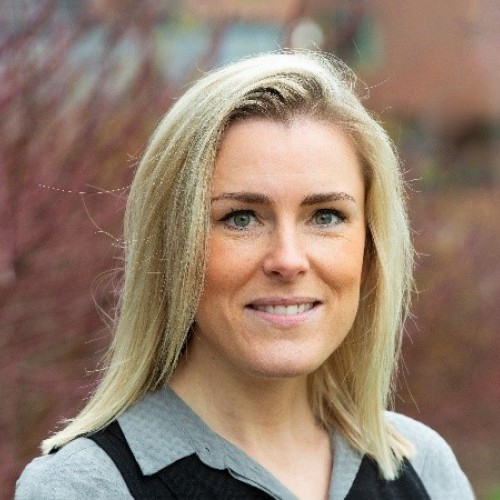
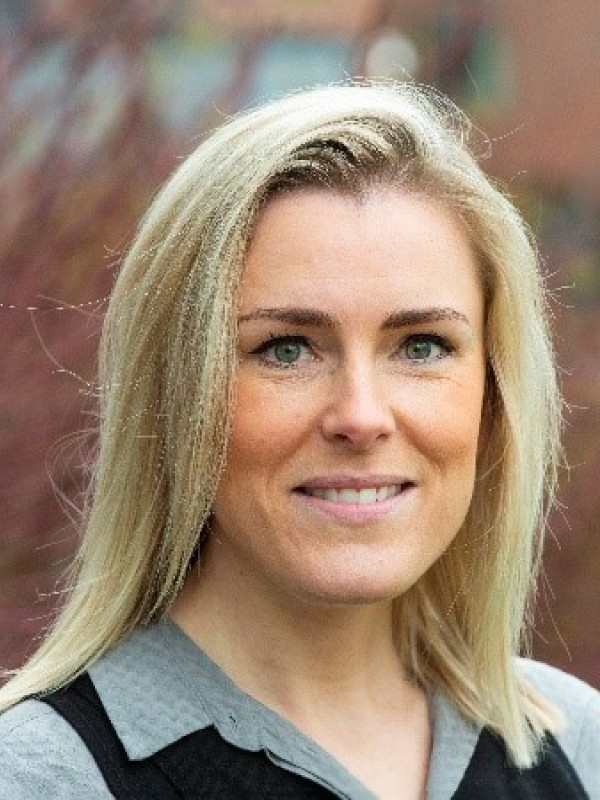
Emma Taylor
Student - Veterinary Medicine and Science PhD
UK qualifications
Applicants are expected to hold a minimum of an upper second-class (2:1) UK degree in an appropriate discipline, but prior experience in research or industry may be acceptable.
English language requirements
IELTS Academic: 6.5 or above (or equivalent) with 6 in each individual category.
These are the English language qualifications and levels that we can accept.
If you do not currently meet the level required for your programme, we offer intensive pre-sessional English language courses, designed to take you to the level of English ability and skill required for your studies here.
Selection process
Selection is based on applicants:
- Meeting the expected entry requirements and providing all relevant documents including a satisfactory research proposal
- Being shortlisted through the application screening process
- Completing a successful interview
- Providing suitable references.
Fees per year
Explore UKCISA's website for more information if you are unsure whether you are a UK or overseas student. View the list of fees for all postgraduate research courses.
* Please note: any start date other than September will attract a pro-rata fee for that year of entry (75 per cent for January, 50 per cent for April and 25 per cent for July).
July 2026 - Full-time
- UK
- £5,006
- Overseas
- £27,200
July 2026 - Part-time
- UK
- £2,503
- Overseas
- £13,600
October 2026 - Full-time
- UK
- £5,238
- Overseas
- £28,300
October 2026 - Part-time
- UK
- £2,619
- Overseas
- £14,200
January 2027 - Full-time
- UK
- £5,238
- Overseas
- £28,300
January 2027 - Part-time
- UK
- £2,619
- Overseas
- £14,200
April 2027 - Full-time
- UK
- £5,238
- Overseas
- £28,300
April 2027 - Part-time
- UK
- £2,619
- Overseas
- £14,200
- Annual fees will increase by 4% for each year of study, rounded up to the nearest £100 (subject to legal requirements).
Additional costs
There are additional costs that you can expect to incur when studying at Surrey.
Funding
A Postgraduate Doctoral Loan can help with course fees and living costs while you study a postgraduate doctoral course.
Application process
Applicants should contact potential supervisors before submitting an application via the website. Please refer to section two of our application guidance.
Apply online
To apply online first select the course you'd like to apply for then log in.
Select your course
Choose the course option you wish to apply for.
Sign in
Create an account and sign into our application portal.
The closing date is the last day this month is available for applications, but if you are applying through a studentship you must follow the deadline on the advert to be eligible.
ApplyThe closing date is the last day this month is available for applications, but if you are applying through a studentship you must follow the deadline on the advert to be eligible.
ApplyThe closing date is the last day this month is available for applications, but if you are applying through a studentship you must follow the deadline on the advert to be eligible.
ApplyThe closing date is the last day this month is available for applications, but if you are applying through a studentship you must follow the deadline on the advert to be eligible.
ApplyThe closing date is the last day this month is available for applications, but if you are applying through a studentship you must follow the deadline on the advert to be eligible.
ApplyThe closing date is the last day this month is available for applications, but if you are applying through a studentship you must follow the deadline on the advert to be eligible.
ApplyThe closing date is the last day this month is available for applications, but if you are applying through a studentship you must follow the deadline on the advert to be eligible.
ApplyThe closing date is the last day this month is available for applications, but if you are applying through a studentship you must follow the deadline on the advert to be eligible.
ApplyAfter registration
Students are initially registered for a PhD with probationary status and, subject to satisfactory progress, subsequently confirmed as having PhD status.
About the University of Surrey
Need more information?
Contact our Admissions team or talk to a current University of Surrey student online.
Code of practice for research degrees
Surrey’s postgraduate research code of practice sets out the University's policy and procedural framework relating to research degrees. The code defines a set of standard procedures and specific responsibilities covering the academic supervision, administration and assessment of research degrees for all faculties within the University.
Download the code of practice for postgraduate research admissions (PDF).
Terms and conditions
When you accept an offer to study at the University of Surrey, you are agreeing to follow our policies and procedures, student regulations, and terms and conditions.
We provide these terms and conditions at the offer stage and are shown again at registration. You will be asked to accept these terms and conditions when you accept the offer made to you.
View our generic registration terms and conditions (PDF) for the 2025/26 academic year, as a guide on what to expect.
Disclaimer
This online prospectus has been published in advance of the academic year to which it applies.
Whilst we have done everything possible to ensure this information is accurate, some changes may happen between publishing and the start of the course.
It is important to check this website for any updates before you apply for a course with us. Read our full disclaimer.
